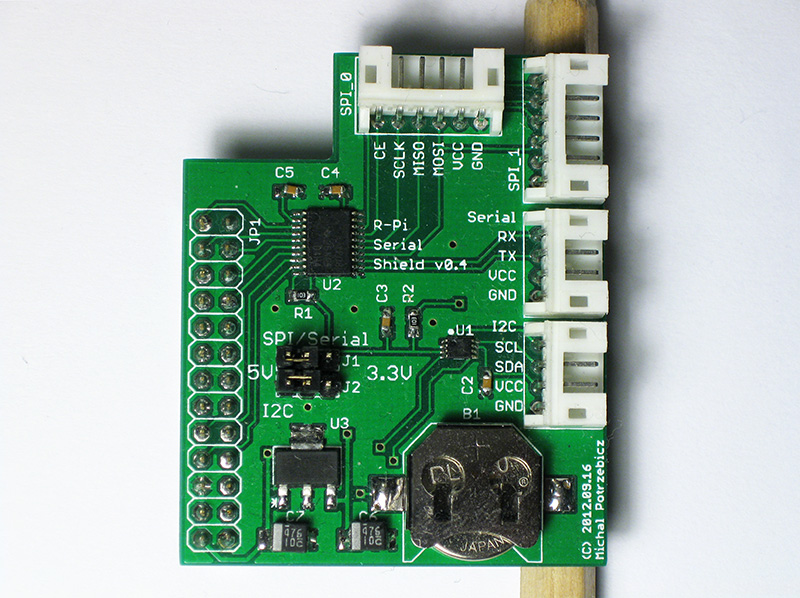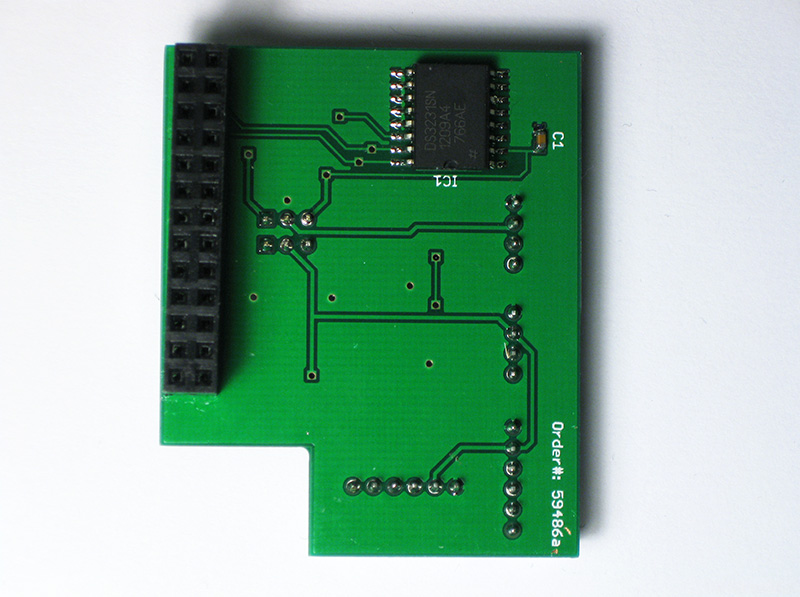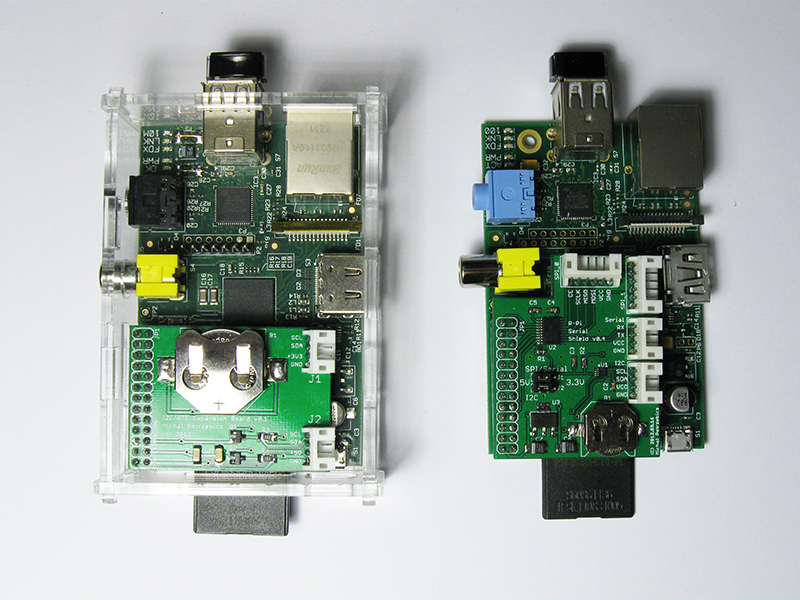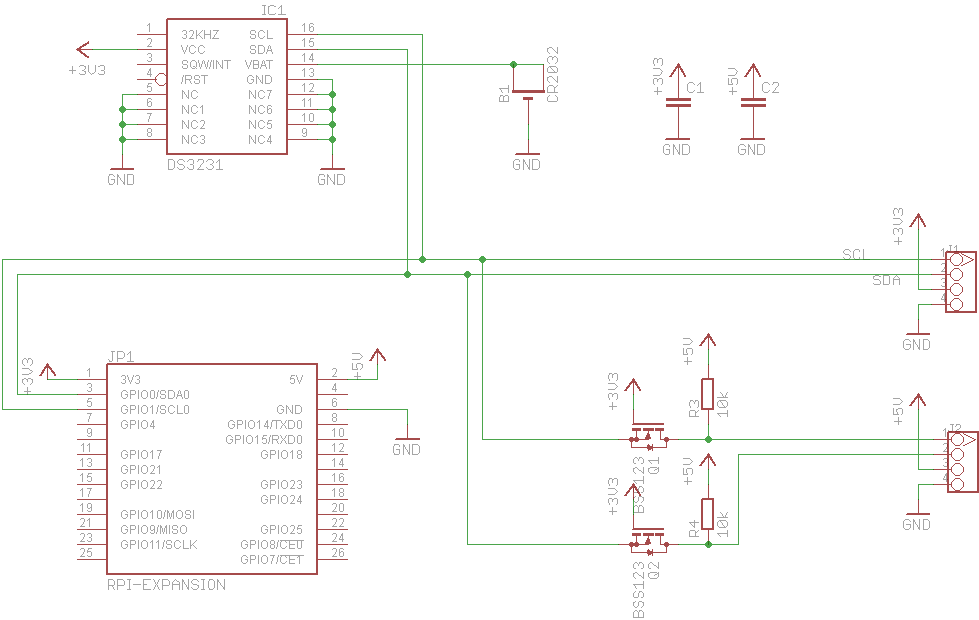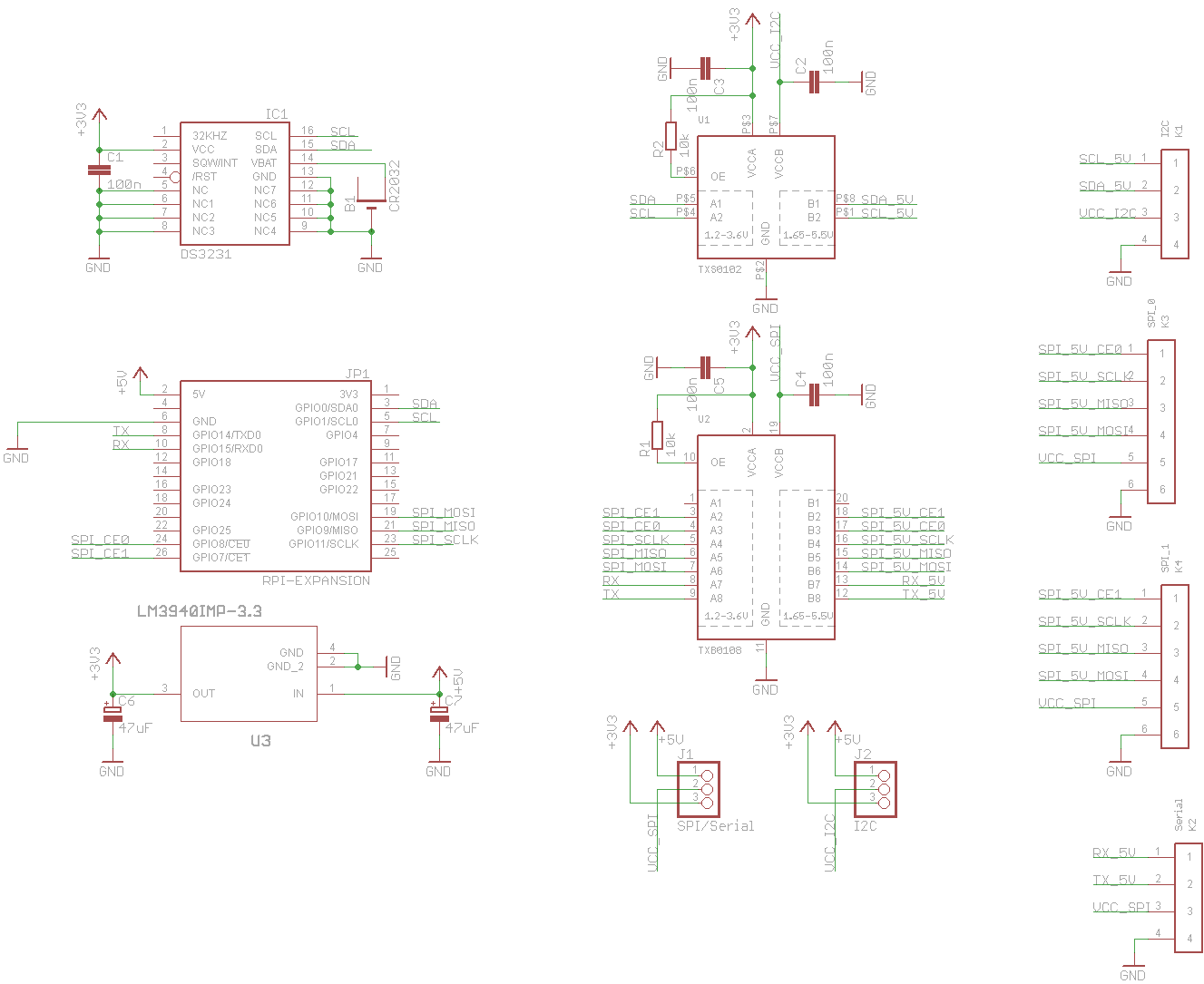One of my first hardware projects for RPi were Serial Shield expansion boards. They provide easily accessible serial interfaces with voltage level conversion for interfacing with 5V logic and a battery backed-up RTC clock which enables hardware clock support in Raspbian.
Board v0.1
This version is one of my first Eagle PCB projects and the very first one to be manufactured.
It provides two I2C interfaces – one with 3.3V signaling, the other one converted to 5V. Converter is a simple, P-MOSFET based solution. There’s also a RTC chip, the DS3231 – which I like very much for its integrated crystal – with CR2032 backup battery.
Note, that there’s no addition voltage regulator for 3.3V connector. External device power consumption is limited to 50mA.
Eagle PCB project files: SerialShield_V0.1
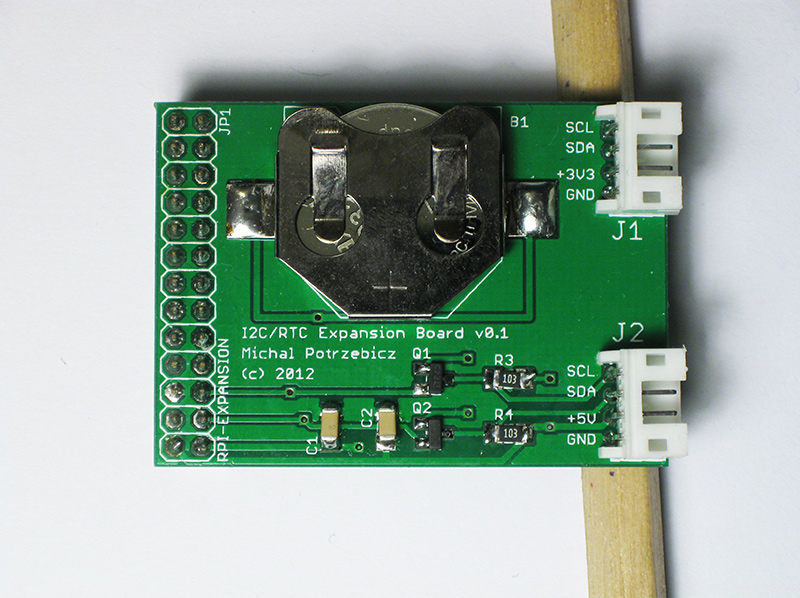
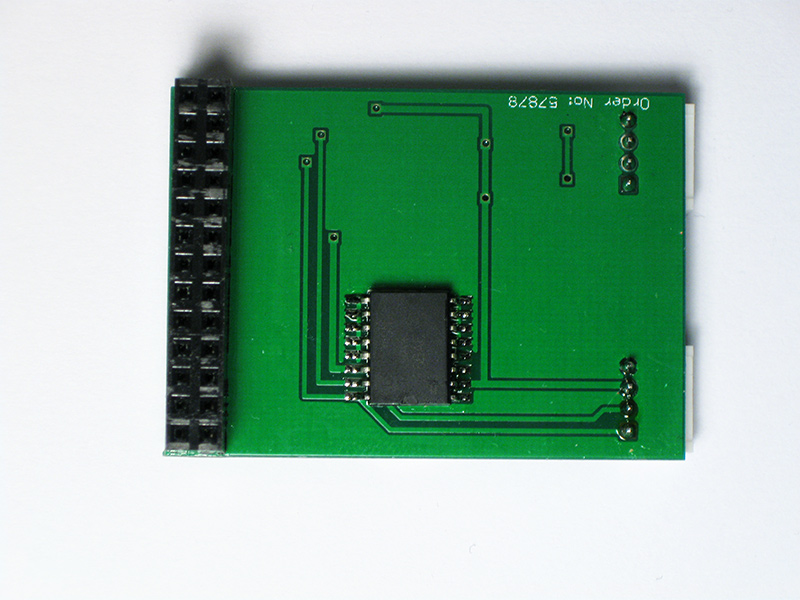
Board v0.4
Version v0.4 is more advanced. It provides SPI, I2C and serial buses with configurable logic level (3.3V/5V, Separately for SPI/Serial and I2C). Voltage translation is provided by specialized chips from Texas Instruments:
- TXB0108 – for two SPI and one serial buses
- TXS0102 – for I2C bus, quite difficult to hand-solder (it’s very small)
Board is also equipped with a 3.3V LDO voltage regulator providing (theoretically) current up to 1.5A, which supplies external bus connectors in 3.3V mode. It provides enough juice to drive some more power-hungry stuff. Of course, it’s limited by RPi’s 5V line (about 300mA in Model B).
DS3231 RTC is also present, together with CR1220 lithium backup battery.
Eagle PCB project files: SerialShield_v0.4
